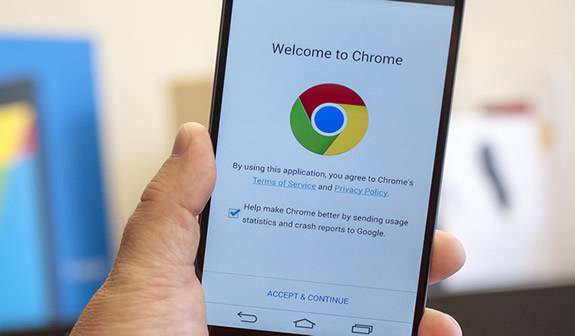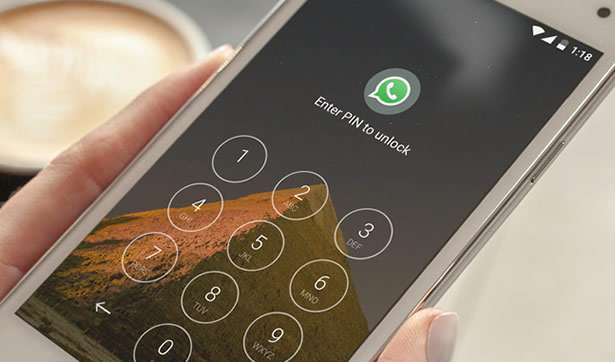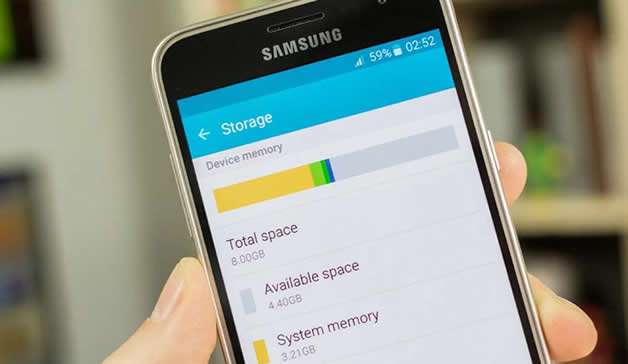Yes, android antivirus apps can be a useful tool for protecting your device from malware and other security threats. They provide a layer of protection that can help keep your device secure by scanning for malicious files, monitoring for suspicious activities, and blocking dangerous websites. Additionally, many apps also offer features such as real-time protection against incoming threats and the ability to locate lost or stolen devices. To ensure you get the most out of an android antivirus app, it is important to research different options before settling on one particular app. Make sure it has all the features you need to protect your device and consider any associated costs such as subscription fees or in-app purchases. Once you have selected an app, read through its user manual or online tutorials to learn how best to set up and use it effectively on your phone or tablet.
Is antivirus apps necessary for Android?
Do antivirus apps work on Android?
Yes, antivirus apps do work on Android. To protect your device from malicious software and other threats, it is important to install a reputable antivirus app onto your device. Here are some steps you can take to ensure that your Android phone or tablet remains safe:
1. Download an antivirus app from the Google Play Store: Look for an app from a trusted provider with good reviews and ratings so you know that it will provide effective protection against malware and other threats.
2. Keep the app updated: Antivirus apps need to be regularly updated in order to stay up-to-date with new types of malicious software as they emerge. Make sure that automatic updates are enabled so any new security patches can be applied immediately when released by the developer of the application.
3. Scan periodically: Regularly scan your device using the installed antivirus app in order to identify any potential threats before they have a chance to cause damage or steal personal data such as passwords or credit card numbers.
4) Be mindful when downloading files and apps: Before installing any file or application, make sure that you trust its source and verify its authenticity carefully – especially if it has been downloaded from outside of the official Google Play store – this will help reduce the chances of unwittingly exposing yourself (or your device) to malicious content which might not be detected by traditional anti-virus technology alone
Do I need antivirus for Android 2022?
Yes, you should have an antivirus program on your Android device in 2022. While the Google Play Store has enhanced its security features and is now much better at keeping malicious apps out of the store, it’s still not 100% reliable. Installing a dedicated antivirus app can help protect your device from malware and other potential threats, such as trojans, ransomware and spyware. Here are a few tips to help you choose the right one for your needs:
1. Make sure it offers real-time protection – The best way to keep your device safe is to make sure that any new files or apps get scanned as soon as they enter the system. That way if anything suspicious does manage to slip through, it will be quickly detected before it can cause any damage.
2. Look for additional features like anti-theft capabilities – It’s important that you look for an antivirus solution that comes with additional security features like remote locking or wiping so you can take action if your phone gets lost or stolen.
3. Check out customer reviews – Before making a decision on which app to use, do some research online to see what customers think about different options available on the market today .
Do virus protection apps actually work?
Yes, virus protection apps do work and can help protect your device from malicious software. By installing an antivirus app on your device, you can increase the chances of avoiding potential risks like viruses, malware and phishing scams. To ensure maximum security for your device, it’s best to use a combination of measures such as regularly updating operating systems and applications, using strong passwords, backing up data regularly and being aware of suspicious emails or links. Additionally, downloading an antivirus app is highly recommended to prevent unauthorized access to your system by offering real-time protection against known threats.
Is having no antivirus OK?
No, it is not recommended to go without antivirus. Antivirus software provides an important layer of defense against malicious programs and attacks that try to access your computer or network. It can protect you from viruses, spyware, ransomware, Trojans and other malicious threats. Without antivirus protection, your device may be prone to attack which could lead to data loss or identity theft. To ensure the safety of your system and its users, it is important to install a reliable antivirus solution on all devices connected to the internet. Here are some steps you can take:
1) Research reputable anti-virus solutions by reading reviews online or asking friends/colleagues for recommendations;
2) Install the chosen anti-virus software onto all computers in your home or business;
3) Ensure regular updates are applied for maximum security;
4) Establish policies regarding safe web browsing habits among staff members and family members who use the internet connection regularly;
5) Make sure any removable media (e.g., USB drives) used with these devices have their own virus protection installed as well before allowing them onto the network;
6) Run virus scans regularly on each machine as part of a comprehensive security program
Does antivirus stop hackers on Android?
No, antivirus software alone cannot stop hackers on Android devices. While antivirus can help detect malicious apps and malware, it is not designed to thwart hacker attacks or other forms of cybercrime. To protect your device from hackers, you should take a comprehensive approach that combines security measures such as regularly updating your operating system and using strong passwords with proactive safety habits like avoiding suspicious links and refraining from sharing confidential information online. Additionally, installing an anti-malware app may provide additional protection against hacker threats.
Are Android virus proof?
No, Android devices are not completely virus proof. While they are generally considered to be safer than other operating systems, Android users should still take steps to protect their device from malicious software and unauthorized access. Here are a few tips for protecting your Android device:
1. Install an Anti-Virus App: Make sure you have a reliable anti-virus app installed on your phone or tablet that can scan for any suspicious activity and block any potential threats before they cause damage to your system.
2. Avoid Unverified Sources: Be careful when downloading apps from outside the Google Play Store as these may contain malicious code or malware that could compromise your data security. Stick with verified sources like Google Play whenever possible.
3. Practice Safe Browsing Habits: Always use caution when browsing online, avoid clicking on suspicious links, and only enter personal information into secure websites with HTTPS encryption enabled in the URL address bar (the “s” stands for secure).
4. Use Strong Passwords & 2FA Authentication: Create strong passwords using a combination of letters, numbers, and special characters; additionally enable two-factor authentication (2FA) if it is available as an extra layer of security for accounts such as email or banking services where applicable..
By following these simple tips you can help keep your Android device safe from viruses and other cyber threats
Can Android antivirus detect malware?
Yes, Android antivirus is capable of detecting malware. To ensure that your device remains secure, it is important to use an up-to-date antivirus app and keep it regularly updated. Additionally, you should be aware of the source of any apps and files that you download on your device and only install those from trusted sources. It is also a good idea to enable Google Play Protect or similar security features offered by other app stores to help protect against malicious software. Finally, regularly scan for viruses on your device as part of a comprehensive security strategy in order to detect potential malware threats quickly.
{“@context”:”https://schema.org”,”@type”:”FAQPage”,”mainEntity”:[{“@type”:”Question”,”name”:”Do antivirus apps work on Android?”,”acceptedAnswer”:{“@type”:”Answer”,”text”:”nnYes, antivirus apps do work on Android. To protect your device from malicious software and other threats, it is important to install a reputable antivirus app onto your device. Here are some steps you can take to ensure that your Android phone or tablet remains safe: n1. Download an antivirus app from the Google Play Store: Look for an app from a trusted provider with good reviews and ratings so you know that it will provide effective protection against malware and other threats. n2. Keep the app updated: Antivirus apps need to be regularly updated in order to stay up-to-date with new types of malicious software as they emerge. Make sure that automatic updates are enabled so any new security patches can be applied immediately when released by the developer of the application. n3. Scan periodically: Regularly scan your device using the installed antivirus app in order to identify any potential threats before they have a chance to cause damage or steal personal data such as passwords or credit card numbers. n4) Be mindful when downloading files and apps: Before installing any file or application, make sure that you trust its source and verify its authenticity carefully u2013 especially if it has been downloaded from outside of the official Google Play store u2013 this will help reduce the chances of unwittingly exposing yourself (or your device) to malicious content which might not be detected by traditional anti-virus technology alone”}},{“@type”:”Question”,”name”:”Do I need antivirus for Android 2022?”,”acceptedAnswer”:{“@type”:”Answer”,”text”:”nnYes, you should have an antivirus program on your Android device in 2022. While the Google Play Store has enhanced its security features and is now much better at keeping malicious apps out of the store, itu2019s still not 100% reliable. Installing a dedicated antivirus app can help protect your device from malware and other potential threats, such as trojans, ransomware and spyware. Here are a few tips to help you choose the right one for your needs: n1. Make sure it offers real-time protection u2013 The best way to keep your device safe is to make sure that any new files or apps get scanned as soon as they enter the system. That way if anything suspicious does manage to slip through, it will be quickly detected before it can cause any damage. n2. Look for additional features like anti-theft capabilities u2013 Itu2019s important that you look for an antivirus solution that comes with additional security features like remote locking or wiping so you can take action if your phone gets lost or stolen. n3. Check out customer reviews u2013 Before making a decision on which app to use, do some research online to see what customers think about different options available on the market today .”}},{“@type”:”Question”,”name”:”Do virus protection apps actually work?”,”acceptedAnswer”:{“@type”:”Answer”,”text”:”nnYes, virus protection apps do work and can help protect your device from malicious software. By installing an antivirus app on your device, you can increase the chances of avoiding potential risks like viruses, malware and phishing scams. To ensure maximum security for your device, itu2019s best to use a combination of measures such as regularly updating operating systems and applications, using strong passwords, backing up data regularly and being aware of suspicious emails or links. Additionally, downloading an antivirus app is highly recommended to prevent unauthorized access to your system by offering real-time protection against known threats.”}},{“@type”:”Question”,”name”:”Is having no antivirus OK?”,”acceptedAnswer”:{“@type”:”Answer”,”text”:”nNo, it is not recommended to go without antivirus. Antivirus software provides an important layer of defense against malicious programs and attacks that try to access your computer or network. It can protect you from viruses, spyware, ransomware, Trojans and other malicious threats. Without antivirus protection, your device may be prone to attack which could lead to data loss or identity theft. To ensure the safety of your system and its users, it is important to install a reliable antivirus solution on all devices connected to the internet. Here are some steps you can take: nn1) Research reputable anti-virus solutions by reading reviews online or asking friends/colleagues for recommendations; n2) Install the chosen anti-virus software onto all computers in your home or business; n3) Ensure regular updates are applied for maximum security; n4) Establish policies regarding safe web browsing habits among staff members and family members who use the internet connection regularly; n5) Make sure any removable media (e.g., USB drives) used with these devices have their own virus protection installed as well before allowing them onto the network; n6) Run virus scans regularly on each machine as part of a comprehensive security program”}},{“@type”:”Question”,”name”:”Does antivirus stop hackers on Android?”,”acceptedAnswer”:{“@type”:”Answer”,”text”:”nnNo, antivirus software alone cannot stop hackers on Android devices. While antivirus can help detect malicious apps and malware, it is not designed to thwart hacker attacks or other forms of cybercrime. To protect your device from hackers, you should take a comprehensive approach that combines security measures such as regularly updating your operating system and using strong passwords with proactive safety habits like avoiding suspicious links and refraining from sharing confidential information online. Additionally, installing an anti-malware app may provide additional protection against hacker threats.”}},{“@type”:”Question”,”name”:”Are Android virus proof?”,”acceptedAnswer”:{“@type”:”Answer”,”text”:”nnNo, Android devices are not completely virus proof. While they are generally considered to be safer than other operating systems, Android users should still take steps to protect their device from malicious software and unauthorized access. Here are a few tips for protecting your Android device: nn1. Install an Anti-Virus App: Make sure you have a reliable anti-virus app installed on your phone or tablet that can scan for any suspicious activity and block any potential threats before they cause damage to your system. n2. Avoid Unverified Sources: Be careful when downloading apps from outside the Google Play Store as these may contain malicious code or malware that could compromise your data security. Stick with verified sources like Google Play whenever possible. n3. Practice Safe Browsing Habits: Always use caution when browsing online, avoid clicking on suspicious links, and only enter personal information into secure websites with HTTPS encryption enabled in the URL address bar (the u201csu201d stands for secure). n4. Use Strong Passwords & 2FA Authentication: Create strong passwords using a combination of letters, numbers, and special characters; additionally enable two-factor authentication (2FA) if it is available as an extra layer of security for accounts such as email or banking services where applicable.. nnBy following these simple tips you can help keep your Android device safe from viruses and other cyber threats”}},{“@type”:”Question”,”name”:”Can Android antivirus detect malware?”,”acceptedAnswer”:{“@type”:”Answer”,”text”:”nYes, Android antivirus is capable of detecting malware. To ensure that your device remains secure, it is important to use an up-to-date antivirus app and keep it regularly updated. Additionally, you should be aware of the source of any apps and files that you download on your device and only install those from trusted sources. It is also a good idea to enable Google Play Protect or similar security features offered by other app stores to help protect against malicious software. Finally, regularly scan for viruses on your device as part of a comprehensive security strategy in order to detect potential malware threats quickly.”}}]}







